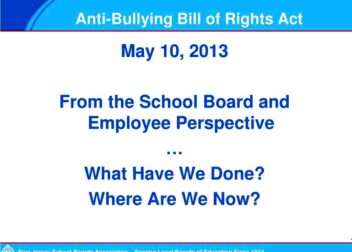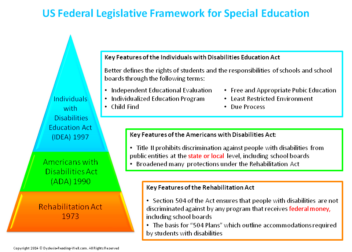How Bullying Laws in Pennsylvania Protect Students
In Pennsylvania the matter of bullying in schools is treated with utmost importance. The state has put in place laws and policies to protect students from the negative impact of bullying. These regulations outline how schools should manage bullying incidents and provide support for victims. The goal is not to ensure safety but also to cultivate an atmosphere of respect and empathy among students. If you have ever witnessed or encountered bullying firsthand you understand the significance of having strong legal measures, to tackle and deter such conduct. Lets delve into how Pennsylvanias stance on bullying can assist students and parents in dealing with these difficult situations.
Defining Bullying and Its Forms
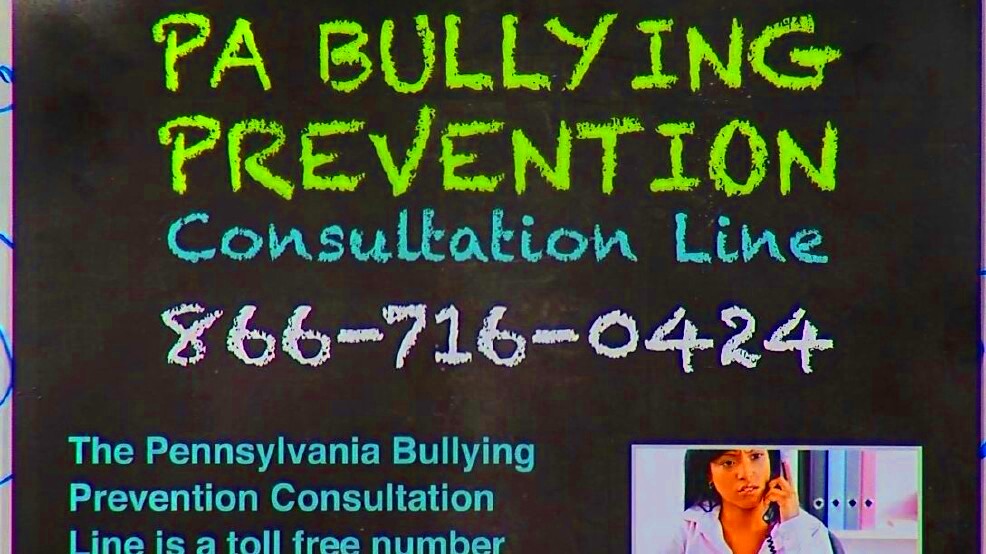
Bullying goes beyond a mean word or a single disagreement; it involves a consistent trend of actions that can inflict serious damage on the targeted individual. In Pennsylvania bullying is characterized as purposeful, recurring and hostile conduct that manifests in different ways. These encompass.
- Physical Bullying: This involves hitting, pushing, or other forms of physical aggression.
- Verbal Bullying: Name-calling, taunting, and making derogatory remarks fall into this category.
- Social Bullying: This includes spreading rumors, excluding someone from a group, or other tactics meant to damage someone’s social relationships.
- Cyberbullying: Using digital platforms like social media or texting to harass or intimidate someone.
Bullying can happen in and out of the school setting. While each type of bullying has its own effects they all cause harm and should not be tolerated. Its crucial for schools and communities to acknowledge these behaviors in order to address and prevent them effectively.
Legal Framework for Protecting Students
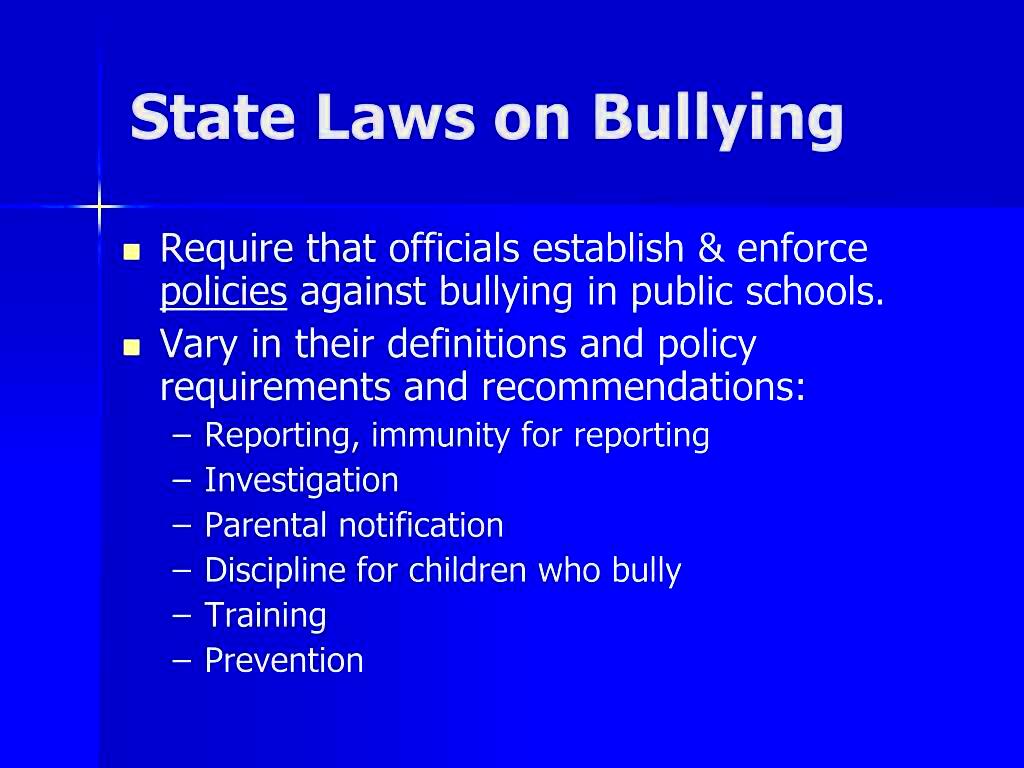
Pennsylvania has laws in place to address bullying and safeguard students to create a secure educational setting. These laws encompass aspects such as
- Anti-Bullying Policy Requirements: Pennsylvania schools are mandated to have comprehensive anti-bullying policies. These policies must define bullying, outline procedures for reporting, and specify how incidents will be investigated and addressed.
- Safe Schools Act: This act emphasizes creating a safe and supportive school environment. It provides guidance on how schools should respond to bullying incidents and supports the establishment of safety plans for affected students.
- Reporting Obligations: Schools are required to report bullying incidents to the Pennsylvania Department of Education. This helps in tracking trends and ensuring that appropriate measures are being taken.
Moreover the legislation upholds the role of parents and guardians in tackling bullying. It guarantees that they are kept in the loop regarding the actions taken by the school and the results of any inquiries. This legal structure not seeks to prevent bullying but also fosters an environment where students feel secure and supported.
School Responsibilities and Policies
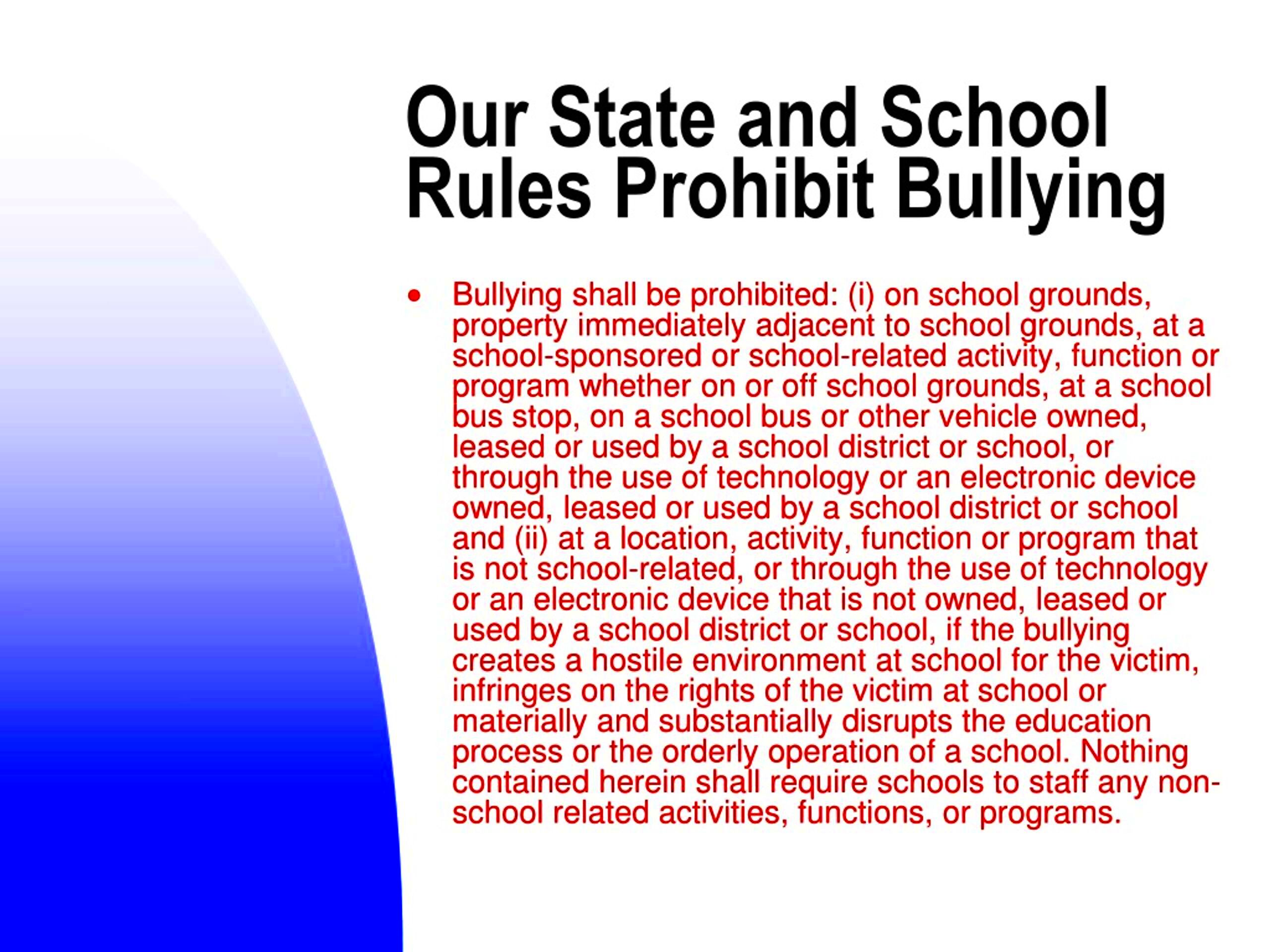
Schools play a vital role in combating bullying. They serve as more than just institutions they are spaces where children should feel safe and appreciated. In Pennsylvania legislation mandates that schools establish anti bullying policies. These policies aim to not address instances of bullying but also to proactively prevent them from occurring in the first place.
Here’s what schools are expected to do:
- Develop Clear Anti-Bullying Policies: Schools must create and enforce policies that define what constitutes bullying, outline procedures for reporting, and detail the consequences for those who engage in bullying behavior.
- Provide Training for Staff: Teachers, administrators, and other school staff should receive training on how to recognize and handle bullying. This ensures that everyone in the school community is prepared to act appropriately when bullying is identified.
- Promote a Positive School Culture: Schools are encouraged to foster an environment of respect and inclusivity. This can include programs that promote empathy and respect among students, creating a positive atmosphere where bullying is less likely to occur.
- Support for Victims: Schools should provide support services for students who have been bullied. This might include counseling and other resources to help victims recover from the emotional and psychological impacts of bullying.
Having seen bullying in schools firsthand I understand how crucial these responsibilities are. Its not merely about enforcing rules but also fostering an atmosphere where every child feels secure and valued. Schools play a role in influencing not academic performance but also the social and emotional health of their students.
Reporting and Investigation Procedures
When bullying occurs it’s crucial to have a system in place for reporting and looking into these incidents. The laws in Pennsylvania make sure that schools are prepared to deal with such situations promptly and sensitively.
Lets take a closer look at how the process of reporting and investigating usually unfolds.
- Reporting Incidents: Students, parents, and staff should report bullying incidents to school authorities. Schools must provide accessible ways for reporting, which can include online forms, hotlines, or designated personnel.
- Initial Assessment: Once a report is received, the school is required to conduct an initial assessment to determine the seriousness of the incident and decide on immediate actions.
- Investigation: A thorough investigation must follow the initial assessment. This involves interviewing the individuals involved, including witnesses, and reviewing any evidence related to the incident.
- Resolution and Action: After the investigation, the school must take appropriate action based on the findings. This can range from disciplinary measures for the bully to support services for the victim. The school must also keep the parties involved informed about the outcome and any steps taken.
Based on my experiences in dealing with situations it’s evident that thorough reporting and investigation play a role in tackling bullying problems. They guarantee that incidents are handled swiftly and justly fostering a safer atmosphere for every student.
Legal Consequences for Bullies and Schools
In Pennsylvania the law not only seeks to stop bullying but also ensures that bullies and schools are held responsible for their behavior. Recognizing the legal repercussions emphasizes the gravity of bullying and the significance of following the rules.
Lets take a look at the possible consequences.
- Consequences for Bullies: Depending on the severity of the bullying, there can be various consequences for the individuals involved. These may include disciplinary actions from the school such as suspension or expulsion, and in severe cases, criminal charges might be filed. Bullying that involves physical harm or severe emotional distress can lead to legal charges and potential criminal records.
- Consequences for Schools: Schools that fail to comply with anti-bullying laws and policies can face legal consequences. This can include legal action from parents or guardians, fines, and mandated changes to policies and procedures. Schools have a legal obligation to protect students, and failing to do so can result in serious repercussions.
From what I’ve witnessed witnessing the legal repercussions firsthand underscores the significance of implementing anti bullying policies. It serves as a reminder that the law takes a stance against bullying and offers support to those who pursue fairness and safeguarding.
Resources for Victims and Parents
Bullying takes a toll on the whole family when a child is targeted. The emotional impact can be heavy and finding the right support can really help. Luckily Pennsylvania provides various resources to assist bullying victims and their loved ones.
Here are some valuable resources available:
- Counseling Services: Many schools provide access to counseling services for students who have been bullied. These counselors offer a safe space for children to express their feelings and work through their experiences.
- Support Groups: There are various support groups for both victims and their families. These groups offer emotional support and practical advice from others who have faced similar challenges. They can be found through local community centers or online platforms.
- Educational Workshops: Some organizations and schools offer workshops to educate parents and children about bullying prevention and coping strategies. These sessions provide valuable information on recognizing signs of bullying and responding effectively.
- Hotlines and Helplines: Pennsylvania has hotlines that offer immediate support and advice. These services can provide guidance on the next steps and help you connect with additional resources.
Based on what I’ve been through I can really see how important it is for families to tap into these resources. They do more than just offer assistance they create a feeling of belonging and empathy. So don’t hold back in seeking help because getting support is crucial, for moving forward and finding closure.
How to Seek Legal Help if Needed
Dealing with bullying situations sometimes calls for action. If you feel that the schools rules and support systems fall short seeking assistance could be a necessary step. Knowing how the process works can empower you to handle these tough situations more confidently.
Here’s how to go about seeking legal help:
- Consult with an Attorney: Start by consulting with an attorney who specializes in education law or personal injury. They can provide you with a clear understanding of your legal rights and options.
- Document Everything: Keep detailed records of bullying incidents, including dates, times, and any communications with the school. This documentation can be crucial if legal action is needed.
- File a Complaint: If the issue remains unresolved through the school, you may need to file a formal complaint with the Pennsylvania Department of Education or the Office for Civil Rights. An attorney can guide you through this process.
- Consider Mediation: Mediation can be an alternative to formal legal action. It involves working with a neutral third party to resolve the issue without going to court. This can often lead to a quicker and less adversarial resolution.
In my view reaching out for assistance is a crucial move and having the right backing can truly be transformative. Dealing with the intricacies of the system can be overwhelming but being aware of your choices and seeking guidance can offer insight and guidance.
Frequently Asked Questions
Dealing with bullying can raise a lot of questions. Here are a few common worries and responses that could shed light on the matter.
- What should I do if my child is being bullied? First, report the bullying to your child’s school. Document everything and seek support from counseling services if needed. If the school does not address the issue adequately, consider escalating it to the Department of Education.
- Can I take legal action against the school? Yes, if the school fails to comply with anti-bullying laws or does not take appropriate action, you may have grounds for legal action. Consult with an attorney to explore your options.
- How can I support my child during this time? Offer emotional support and listen to your child’s concerns. Encourage them to talk about their feelings and assure them that they are not alone. Seek counseling or support groups if necessary.
- Are there any financial resources available for legal help? Some organizations provide financial assistance for legal fees related to bullying cases. Your attorney can help you identify these resources and apply for them if needed.
Knowing your rights and the resources at your disposal can give you the confidence to take meaningful steps forward. Navigating the challenges of bullying can be difficult, but armed with the information and assistance you need you can make choices and effectively stand up for your child.
Conclusion
Effectively addressing bullying requires a concerted effort from schools, families and the community. While Pennsylvanias laws and resources provide a solid framework for combatting bullying the true impact lies in how these tools are applied in day to day situations. Based on my experiences I have witnessed the strength that comes from everyone uniting to foster a supportive atmosphere. If you or your child are dealing with bullying remember that you are not alone. Make use of the available resources seek support when necessary and dont hesitate to pursue action if the situation calls for it. By working together we can create safer schools and ensure that every child has the chance to thrive, in an environment filled with respect and care.

